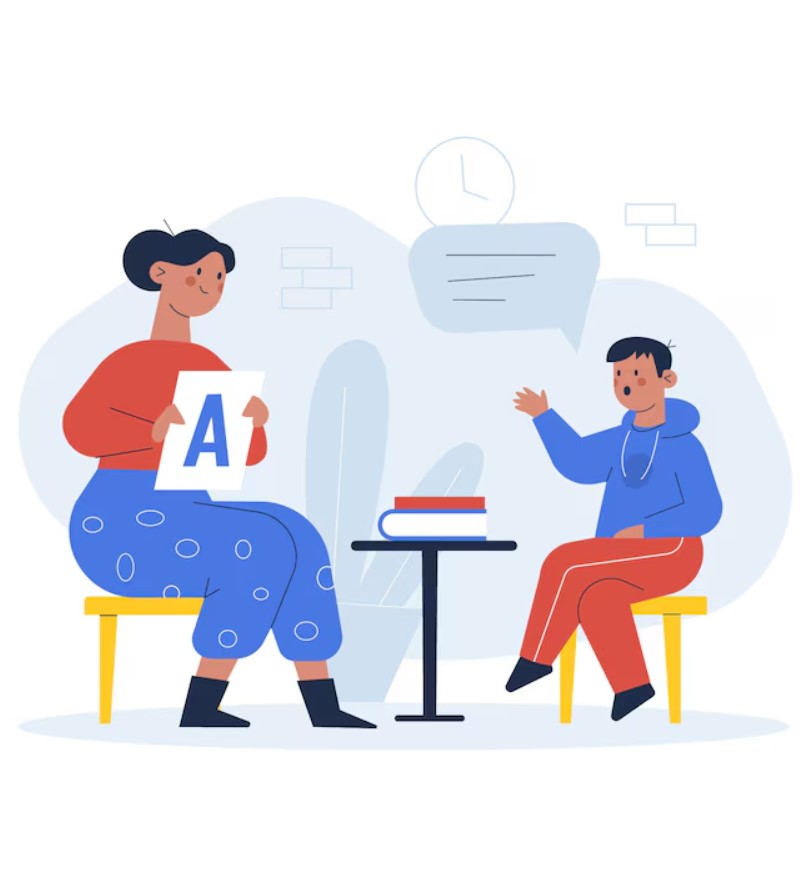54B, Tailstoi Town 5238 MT,
La city, IA 522364

Speech Therapy focuses on receptive language, or the ability to understand words spoken to you, and expressive language, or the ability to use words to express yourself. Adults may need speech therapy after a stroke or traumatic accident, Parkinson’s disease which changes their ability to use language; for children, it generally involves pursuing milestones that have been delayed because of CP or neurological Disorder.
It also deals with the mechanics of producing words, such as articulation, pitch, fluency, and volume. For mechanics, this might involve exercises to strengthen the tongue and lips, such as blowing on whistles or licking up Cheerio’s. For language, this might involve games to stimulate word retrieval, comprehension or conversation.
We have Speech therapist who support in terms of assessment and treatment. We also helps to implement treatment program under supervision of therapist.
A speech disorder refers to a problem with the actual production of sounds, whereas a language disorder refers to a difficulty understanding or putting words together to communicate ideas.
Articulation disorders: difficulties producing sounds in syllables or saying words incorrectly to the point that listeners can’t understand what’s being said.
Fluency disorders: problems such as stuttering, in which the flow of speech is interrupted by abnormal stoppages, repetitions (st-st-stuttering), or prolonging sounds and syllables (stuttering).
Resonance or voice disorders: problems with the pitch, volume, or quality of the voice that distract listeners from what’s being said. These types of disorders may also cause pain or discomfort for a child when speaking.
Dysphagia/oral feeding disorders: these include difficulties with drooling, eating, and swallowing.
Receptive disorders: difficulties understanding or processing language.
Expressive disorders: difficulty putting words together, limited vocabulary, or inability to use language in a socially appropriate way.
Neck Exercise
Tongue Exercise
Lips Exercise
Jaws Exercise
Step Phonation Exercise
Rate of Speech (Spontaneous)
Rate of Speech (Interaction)
Phonation Exercise
Breathing Exercise: Thoracic Breathing (Nose & Mouth) Abdominal Breathing

Source/s:
Banner image by freepik.com | Inner image by freepik.com
Speech therapy is necessary for difficulties like unclear speech (articulation disorders), stuttering (fluency disorders), voice issues (voice disorders), challenges in understanding or using language (language disorders), and problems with swallowing (dysphagia).
Speech therapy enhances communication by strengthening speech muscles, improving breath control, teaching language comprehension and expression strategies, and addressing fluency and articulation for clearer speech.
Oromotor exercises focus on strengthening muscles in the mouth, tongue, lips, and jaw, which are essential for speech production and swallowing. These exercises help improve speech clarity and swallowing function.
Consider speech therapy if communication difficulties affect daily life, there are concerns about developmental speech delays (especially in children), speech changes follow neurological events, swallowing issues arise, or oromotor weakness impacts speech production or swallowing function.